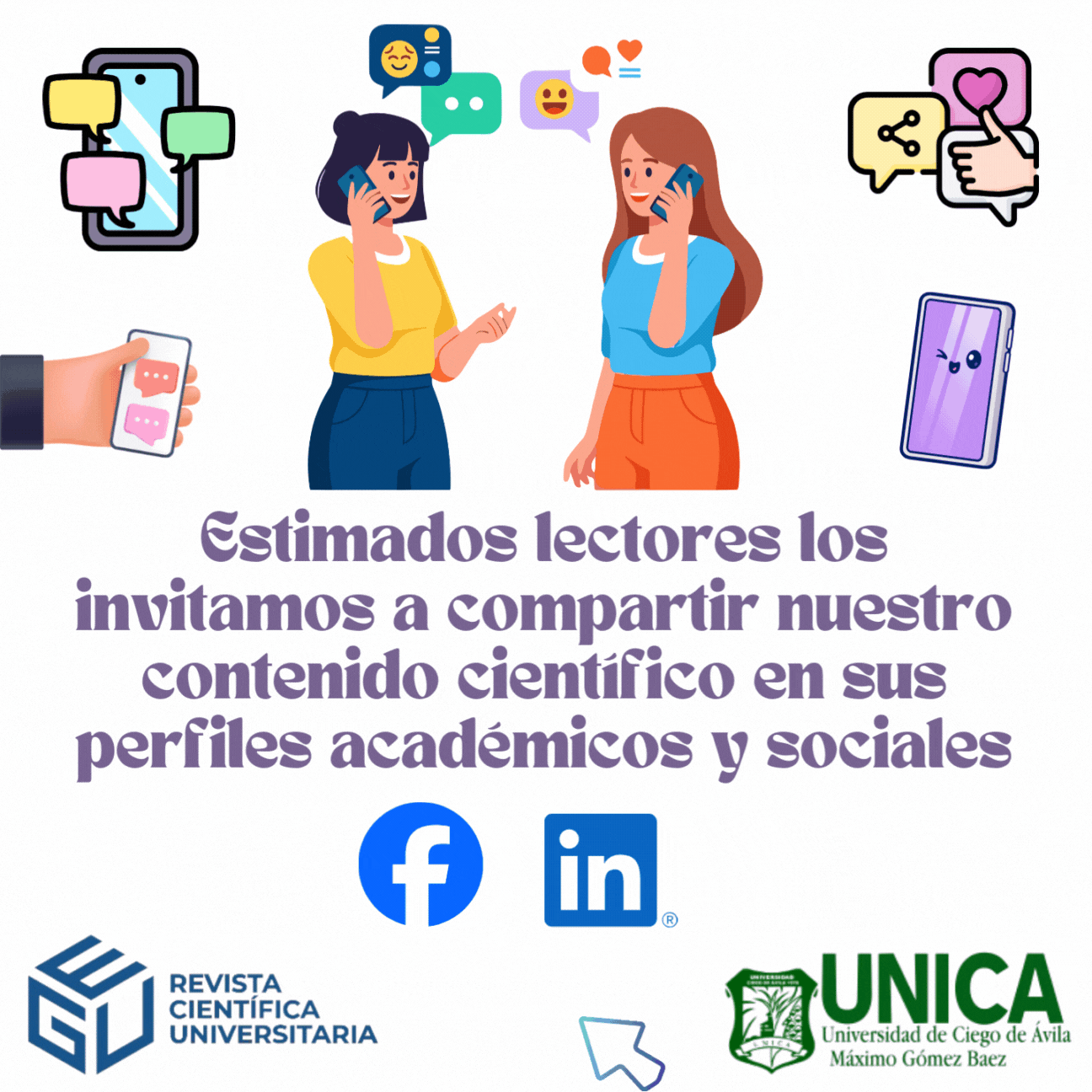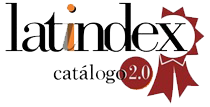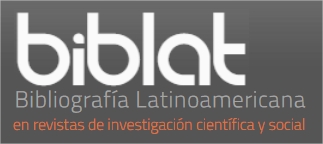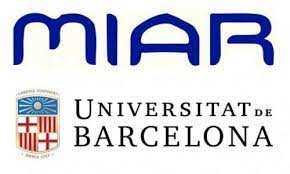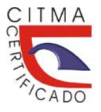Experiência de technovation na aprendizagem para a formação em i-empreendedorismo: como preparar os alunos para a economia digital?
DOI:
https://doi.org/10.5281/zenodo.14908364%20Palavras-chave:
aprendizagem de tecnovação, i-empreendedorismo, método geek e talento, objetivos de desenvolvimento sustentável, infoprodutos, inteligência artificialResumo
Introdução: com o avanço da economia digital e para evitar o temido desemprego tecnológico, é urgente reconciliar universidade e empreendedorismo, utilizando aplicativos e inteligências artificiais que facilitem essa missão. Objetivo: apresentar uma experiência de aprendizagem de tecnovação, capacitando os estudantes para se tornarem i-empreendedores. Método: o design é um estudo descritivo e exploratório que sistematiza os antecedentes de dez anos de experiência, baseado em uma experiência de aprendizagem ativa e colaborativa, com gamificação e sala de aula invertida, para equipes que simulam ser startups em um concurso. Resultados: o conteúdo e a estrutura oferecem um diagnóstico da situação, continuando com a apresentação da experiência e os pontos principais em seu desenvolvimento e realização, para ajudar a quem estiver interessado em sua replicação. Entre os resultados e achados, destaca-se o maior compromisso dos estudantes, aumentando sua assiduidade e participação, verificado nas notas e nas pesquisas de qualidade docente. Conclusão: esta experiência de aprendizagem mostra como se tornar um empreendedor digital e, assim, evitar o temido desemprego tecnológico. Os estudantes puderam comprovar por si mesmos a necessária relação entre o mundo acadêmico e o profissional, além de empreenderem seus próprios projetos após a experiência na sala de aula.
Downloads
Referências
Barroso, L.R., & Barroso, L.V. (2023). Democracy, Social Media, and Freedom of Expression: Hate, Lies, and the Search for the Possible Truth. Chi. J. Int'l L., 24, 51. https://chicagounbound.uchicago.edu/cjil/vol24/iss1/3/
Boettke, P., Haeffele-Balch, S., & Storr, V. (2016). Mainline Economics. Mercatus Center Mainline Economics | Mercatus Center
Cardeño Portela, N., Cardeño Portela, E. J., & Bonilla Blanchar, E. (2023). TIC y transformación académica en las universidades. Región Científica, 2(2), 202370. https://doi.org/10.58763/rc202370
Corduneanu, A. (2020). Austrian Economics and its idiosyncartic ideas for the digital age. Revista Economică, 72(2), 8-18. http://economice.ulbsibiu.ro/revista.economica/archive/72201corduneanu.pdf
Dobrowolski, Z. (2020). After COVID-19: reorientation of crisis management in crisis. Entrepreneurship and Sustainability Issues, 8(2). https://doi.org/10.9770/jesi.2020.8.2(48)
Draghi, M. (2024). The future of Europe competitiveness: A competitiveness strategy for Europe. Brussels: European Commission. https://policycommons.net/artifacts/16410847/untitled/17295597/
Esteve-Mon, F. M., Llopis-Nebot, M. Á., & Adell-Segura, J. (2020). Digital teaching competence of university teachers: A systematic review of the literature. IEEE revista Iberoamericana de Tecnologías del aprendizaje, 15(4), 399-406. https://doi.org/10.1109/RITA.2020.3033225
EU-Consilium. (2019a). The Economy of Wellbeing: going beyond the GDP. https://www.consilium.europa.eu/en/infographics/economy-wellbeing/
EU-Consilium. (2019b). The Economy of Well-Being - Executive Summary of the OECD Background Paper on "Creating opportunities for people's well-being and economic growth". doc. 10414/18 ADD 1 https://data.consilium.europa.eu/doc/document/ST-10414-2019-INIT/en/pdf
Felicetti, A. M., Corvello, V., & Ammirato, S. (2024). Digital innovation in entrepreneurial firms: a systematic literature review. Review of Managerial Science, 18(2), 315-362. https://doi.org/10.1007/s11846-023-00638-9
Figueiredo, V., & Ribeiro, S. (2022). Experiential learning in entrepreneurship education: A systematic literature review. Teaching and Teacher Education, 121, 103919, https://doi.org/10.1016/j.tate.2022.103919
Fuchs, C. (2015). Culture and economy in the age of social media. Routledge. Culture and Economy in the Age of Social Media | Christian Fuchs | Tay (taylorfrancis.com)
Garzón, E., Martínez, T., Ortega, J., Marin, J., & Gomez, G. (2020). Teacher training in lifelong learning—The importance of digital competence in the encouragement of teaching innovation. Sustainability, 12(7), 2852. https://doi.org/10.3390/su12072852
Gaus, G. (2020). A Branch on the Mainline: Hayek’s Analysis of Complex Adaptive Systems. Cosmos + Taxis, 7(5), 32-41. https://cosmosandtaxis.org/wp-content/uploads/2020/02/gaus_ct_vol7_iss5_6.pdf
Gavrila, S., & De Lucas, A. (2022). Entrepreneurship, innovation, digitization and digital transformation toward a sustainable growth within the pandemic environment. International Journal of Entrepreneurial Behavior & Research, 28(1), 45-66. https://doi.org/10.1108/IJEBR-05-2021-0395
Gehrke, C. (2003). The Ricardo Effect: Its Meaning and Validity. Economica, 70 (277), 143–158. https://doi.org/10.1111/1468-0335.t01-1-00275
Gonzales, Y. M., Napoleón, L., y Pérez, A. J. (2023). Metaverso y educación: un espacio complejo para la próxima revolución educacional. Metaverse Basic and Applied Research, 2 (56), 1-10. https://doi.org/10.56294/mr202356
Guerra, D. D. D., Gamboa, A. J. P., & Cano, C. A. G. (2023). Social network analysis in virtual educational environments: Implications for collaborative learning and academic community development. AWARI, 4, 1–12. https://doi.org/10.47909/awari.595
Hausmann, R., & Hidalgo, C. (2014) The Atlas of Economics Complexity. Mapping Paths to Prosperity. MIT Press The Atlas of Economic Complexity: Mapping Paths to Prosperity | The Growth Lab (harvard.edu)
Hayek, F. (1935). Prices and Production. In Salerno J (ed.) Prices and Production and Other Works. Auburn: Mises Institute (2008).
Hayek, F. (1939). Profits, Interest, and Investment, and other Essays on the Theory of Industrial Fluctuations. In Hansjörg Klausinger (ed.) The Collected Works of F.A. Hayek (vol. 8, Business Cycles Part II, 2012).
Herman, E. (2022). The interplay between digital entrepreneurship and sustainable development in the context of the EU digital economy: A multivariate analysis. Mathematics, 10(10), 1682. https://doi.org/10.3390/math10101682
Huarachi, D., Piekarski, C., Puglieri, F., & de Francisco, A. (2020). Past and future of Social Life Cycle Assessment: Historical evolution and research trends. Journal of Cleaner Production, 264, 121506. https://doi.org/10.1016/j.jclepro.2020.121506
Hutchinson, C. S. (2022). Potential abuses of dominance by big tech through their use of Big Data and AI. Journal of Antitrust Enforcement, 10(3), 443-468. https://doi.org/10.1093/jaenfo/jnac004
Jandrić, P., & Hayes, S. (2020). Technological unemployment and its educational discontents. In Stocchetti, M. (ed.). The Digital Age and Its Discontents: Critical Reflections in Education, Helsinki University Press, 161-182. https://doi.org/10.2307/j.ctv16c9hdw.13; https://www.jstor.org/stable/j.ctv16c9hdw.13
Jiménez-Pitre, I., Molina-Bolívar, G., & Gámez Pitre, R. (2023). Visión sistémica del contexto educativo tecnológico en Latinoamérica. Región Científica, 2(1), 202358. https://doi.org/10.58763/rc202358
Kaldor, N. (1942) Professor Hayek and the Concertina-Effect. Economica, 9(36), 359–382.
Keynes, J. (1930). Economic Possibilities for our Grandchildren. Macmillan.
Khanal, S., Zhang, H., & Taeihagh, A. (2024). Why and how is the power of Big Tech increasing in the policy process? The case of generative AI. Policy and Society, puae012. https://doi.org/10.1093/polsoc/puae012
Kolev, S. (2020). F. A. Hayek, Gemeinschaft and Gesellschaft, Globalization and Digitalization. Cosmos + Taxis, 7(5), 42-49 COSMOS + TAXIS | Volume 7 Issue 5 + 6 2020 (cosmosandtaxis.org)
Kollmann, T., Kleine-Stegemann, L., de Cruppe, K., & Strauss, C. (2022). Eras of digital entrepreneurship: connecting the past, present, and future. In Handbook of digital entrepreneurship (p. 49-73). Edward Elgar Publishing. https://doi.org/10.4337/9781800373631.00009
Kuzior, A. (2022). Technological unemployment in the perspective of Industry 4.0. Virtual Economics, 5(1), 7-23. https://doi.org/10.34021/ve.2022.05.01(1)
Lima, Y., Barbosa, C. E., dos Santos, H. S., & de Souza, J. M. (2021). Understanding technological unemployment: a review of causes, consequences, and solutions. Societies, 11(2), 50. https://doi.org/10.3390/soc11020050
Liu, Z. (2022). Principles of Digital Economics. Springer Singapore. Principles of Digital Economics: Innovation Theory in the Age of Intelligence | SpringerLink
López González, Y. Y. (2023). Aptitud digital del profesorado frente a las competencias TIC en el siglo XXI: una evaluación de su desarrollo. Región Científica, 2(2), 2023119. https://doi.org/10.58763/rc2023119
Lv, B., Deng, Y., Meng, W., Wang, Z., & Tang, T. (2023). Research on digital intelligence business model based on artificial intelligence in post- epidemic era. Management Decision, 62(9): 2937-2957. https://doi.org/10.1108/MD-11-2022-1548
Mielants, E., & Bardos, K. (Eds.). (2020). Economy Cycles and Social Movements: Past, Present and Future. Routledge. Economic Cycles and Social Movements | Past, Present and Future | Eric (taylorfrancis.com)
Oloyede, A. A., Faruk, N., Noma, N., Tebepah, E., & Nwaulune, A. K. (2023). Measuring the impact of the digital economy in developing countries: A systematic review and meta-analysis. Heliyon, 9(7). e17654. DOI: https://doi.org/10.1016/j.heliyon.2023.e17654
Paul, J., Alhassan, I., Binsaif, N., & Singh, P. (2023). Digital entrepreneurship research: A systematic review. Journal of Business Research, 156, 11350. https://doi.org/10.1016/j.jbusres.2022.113507
Pérez Gamboa, A. J., Gómez Cano, C. A., & Sánchez Castillo, V. (2022). Decision making in university contexts based on knowledge management systems. Data and Metadata, 1, 92. https://doi.org/10.56294/dm202292
Purnomo, A., Susanti, T., Sari, A. K., Firdaus, M., & Dewi, R. (2020). A study of digital entrepreneurship through bibliometric visualizing from 1993 to 2019. In 2020 International Conference on Information Management and Technology (ICIMTech) (p. 911-915). IEEE. https://doi.org/10.1109/ICIMTech50083.2020.9211270
Sánchez-Bayón, A. (2021a). Balance de la economía digital ante la singularidad tecnológica. Sociología y Tecnociencia, 11(2), 53-80. https://doi.org/10.24197/st.Extra_2.2021.53-80
Sánchez-Bayón, A. (2021b). Una historia de las ciencias económicas desde sus raíces y disciplinas duales: de la hacendística y camerología a la economía aplicada y su giro hermenéutico. Revista Facultad de Ciencias Económicas, 29(2), 87-103. https://doi.org/10.18359/rfce.5439
Sánchez-Bayón, A. (2022). Transición digital y reajuste del sector turístico en la Unión Europea. Revista Internacional de Turismo, Empresa y Territorio-RITUREM, 6(2), 1-24. https://doi.org/10.21071/riturem.v6i12.15049
Sánchez-Bayón, A. (2023). Análisis heterodoxo del sector turístico español pos-COVID: fallos en reajuste digital del empleo y vulnerabilidad empresarial, Estudios Económicos, 40(81), 223-252, https://doi.org/10.52292/j.estu-decon.2023.3438
Sánchez-Bayón, A., Urbina, D., Alonso-Neira, M.A, & Arpi, R. (2023). Problema del conocimiento económico: revitalización de la disputa del método, análisis heterodoxo y claves de innovación docente. Bajo Palabra, (34), 117–140. https://doi.org/10.15366/bp2023.34.006
San-Martín, S., Jiménez, N., Rodríguez-Torrico, P., & Piñeiro-Ibarra, I. (2020). The determinants of teachers’ continuance commitment to e-learning in higher education. Education and Information Technologies, 25(4), 3205-3225. https://doi.org/10.1007/s10639-020-10117-3
Schirch, L. (Ed.). (2021). Social media impacts on conflict and democracy: The techtonic shift. Routledge. Social Media Impacts on Conflict and Democracy: The Techtonic Shift - (routledge.com)
Sharma, A., & Singh, B. J. (2020). Evolution of industrial revolutions: a review. International Journal of Innovative Technology and Exploring Engineering, 9(11), 66-73. https://doi.org/10.35940/ijitee.I7144.0991120
Shaukat, S., Vishnumolakala, V. R., & Al Bustami, G. (2019). The impact of teachers’ characteristics on their self‐efficacy and job satisfaction: A perspective from teachers engaging students with disabilities. Journal of Research in Special Educational Needs, 19(1), 68–76. https://doi.org/10.1111/1471-3802.12425
Siri, A., Supartha, I. W. G., Sukaatmadja, I. P. G., & Rahyuda, A. G. (2020). Does teacher competence and commitment improve teacher’s professionalism. Cogent Business & Management, 7(1), 1781993. https://doi.org/10.1080/23311975.2020.1781993
Sitaridis, I., & Kitsios, F. (2024). Digital entrepreneurship and entrepreneurship education: a review of the literature. International Journal of Entrepreneurial Behavior & Research, 30(2/3), 277-304. https://doi.org/10.1108/IJEBR-01-2023-0053
Stan, R. S., Albert, C. N., Holonec, L., Simonca, V., Colisar, A., Rebreanu, F., & Sîngeorzan, S. (2021). Learning by doing–a method for practical activities. In EDULEARN21 Proceedings (p. 11032-11038). IATED. https://doi.org/10.21125/edulearn.2021.2288
Steininger, D. (2019). Linking information systems and entrepreneurship: A review and agenda for IT‐associated and digital entrepreneurship research. Information Systems Journal, 29(2), 363-407 https://doi.org/10.1111/isj.12206
Tominc, P., & Rožman, M. (2023). Artificial intelligence and business studies: study cycle differences regarding the perceptions of the key future competences. Education Sciences, 13(6), 580. https://doi.org/10.3390/educsci13060580
Trongtorsak, S., Saraubon, K., & Nilsook, P. (2021). Collaborative Experiential Learning Process for Enhancing Digital Entrepreneurship. Higher education studies, 11(1), 137-147. https://doi.org/10.5539/hes.v11n1p137
URJC. (2024). URJC en datos (URL: URJC data - Rey Juan Carlos University; accessed Nov. 2024).
Volti, R., & Croissant, J. (2024). Society and technological change. Waveland Press. Waveland Press - Society and Technological Change, Ninth Edition, by Rudi Volti, Jennifer Croissant
Von Briel, F., Selander, L., Hukal, P., Lehmann, J., Rothe, H., Fürstenau, D., & Wurm, B. (2021). Researching digital entrepreneurship: Current issues and suggestions for future directions. Communications of the Association for Information Systems, 48, 284-304. https://doi.org/10.17705/1CAIS.04833
Wang, C. H., Padmanabhan, P., & Huang, C. H. (2022). The impacts of the 1997 Asian financial crisis and the 2008 global financial crisis on renewable energy consumption and carbon dioxide emissions for developed and developing countries. Heliyon, 8(2). https://doi.org/10.1016/j.heliyon.2022.e08931
Wolff, J. (2021). How is technology changing the world, and how should the world change technology? Global Perspectives, 2(1), 27353. https://doi.org/10.1525/gp.2021.27353
Downloads
Publicado
Como Citar
Edição
Seção
Licença
Copyright (c) 2025 Estrategia y Gestión Universitaria

Este trabalho está licenciado sob uma licença Creative Commons Attribution-NonCommercial-ShareAlike 4.0 International License.



